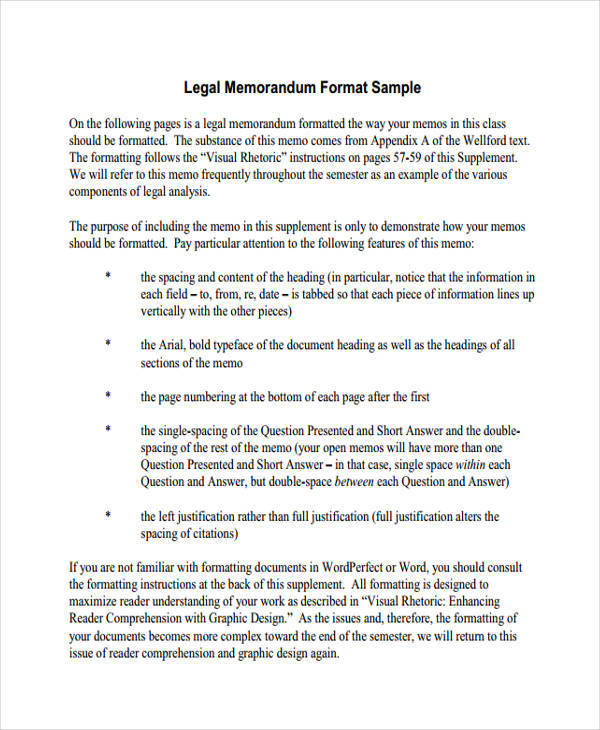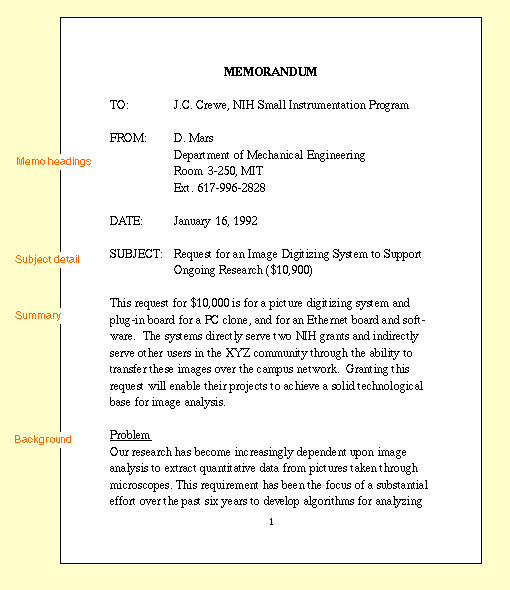
Memo writers use single sentence issue statements because of convention there is no rule that says you must write it in one sentence. Example "Under the common law, does Jordan William have a claim for invasion of privacy when the bank employee looked at his bank records for personal reasons?" If you follow the format you will be sure to cover the law, the facts, and the question to be answered. Some legal writing experts recommend this format because the structure acts as a checklist. Example "Whether Jordan William has a claim against the bank employee for invasion of privacy because of the bank employee's unauthorized examination of his banking records." "Under, does, when" Format Punctuation Note: "whether" introduces a statement, and not a question, so there is no question mark at the end of the sentence. Others don't like it because it is an incomplete, ungrammatical sentence, and can sound awkward. Some lawyers prefer it because to their ear it sounds more neutral. This is another common way of expressing an issue. Here is an example of an issue statement on whether your jurisdiction will adopt a new cause of action: Will the court recognize a civil action for invasion of personal privacy and award damages when a bank's employee examined Jordan William's bank account without authorization over a period of 10 months? "Whether" Format There are no cases in your jurisdiction claiming damages for invasion of personal privacy. Your client, Jordan William, learned that a bank employee had snooped into his banking information for personal reasons. Where you have more than one issue, each should be expressed separately, usually in number format. A good question gives the reader an immediate sense of the key facts and the legal tests. This is the most common way to express an issue because it directly connects to the task of answering the client's questions. Here is a short explanation of the most common issue writing conventions. alert the reader to the relevant law, the significant facts, and the questions that will be discussed.All the conventions share certain key features. Memo writers often use one of several conventions. There is no single way to write the issues. Issue Writing Conventions: Questions, Statements, and Multi-Sentence Formats Clarity is your goal While the initial version of the issues helps the writer structure the discussion, the iterative process of thinking and writing often changes the content and structure of the legal issue. Writers face the challenge of how detailed to make the issue statement, how many issues to include, and whether issues should be stated separately or as sub-questions.Įxperienced legal writers expect to redraft the issue section as they rework the discussion section.

However, memos usually relate to specific client facts.Įxpressing the issues accurately is one of the most difficult aspects of memo writing. Example "What is the current state of the law on false imprisonment?"
#LEGAL MEMO EXAMPLE UPDATE#
Occasionally, assigning lawyers will ask an abstract or general legal question when they need an update on a specific area as background for a client matter, or for a firm newsletter, or for a presentation. This would not be a neutral question because the key issue (was he falsely imprisoned?) is stated as conclusion. Example "Will John Crate be awarded damages because he was falsely imprisoned by the store's security guard?" Otherwise, your reader could assume your analysis is not objective and may only reflect one side of the issue.



In predictive writing, the question must be neutral to the point that either side might have written the same question. The question needs to be precise, complete, and straightforward. The question, "Can I sue?" becomes: "Did the security guard at the department store falsely imprison John Crate when the guard held Crate's arm, preventing him from leaving the store until the police arrived?" The issue section reframes the client's questions into legal questions that identify the controlling legal rules and relevant client facts. The client asks questions like "Will I win?", "Am I going to jail?", "Am I liable?", or "Will I be evicted?" These questions link your research to your discussion and conclusion. The legal issue section sets out the questions you will ultimately answer. Stating the Question You Will Answer: Precisely, Completely, Simply, and Neutrally Issue Statements or Questions Presented a.


 0 kommentar(er)
0 kommentar(er)
